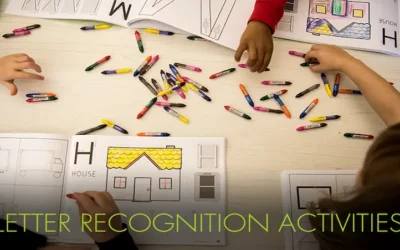Welcome to “The Ultimate Dictionary for Kids: Boost Your Child’s Vocabulary”! In today’s rapidly evolving world, strong language skills are essential for success in various aspects of life. As parents and educators, we recognize the importance of building a robust vocabulary foundation in children from a young age.
This dictionary has been carefully crafted to serve as a valuable resource for children, empowering them to enhance their language abilities, improve their communication skills, and cultivate a lifelong love for words.
A strong vocabulary is a cornerstone of effective communication and language proficiency. For children, developing a robust vocabulary is of utmost importance as it lays the foundation for their academic success and lifelong learning.
A vast vocabulary empowers children to express their thoughts, ideas, and emotions with precision, clarity, and confidence. It enhances their reading and writing abilities, comprehension skills, critical thinking, and overall cognitive development.
In this fast-paced and increasingly interconnected world, where effective communication is essential in every facet of life, building a strong vocabulary becomes a vital skill for children to navigate and excel in various domains.
This introduction will explore the significance of developing a rich vocabulary for children and shed light on the numerous benefits it brings to their personal, educational, and social lives.
By investing time and effort into expanding children’s lexicon, we not only equip them with the tools to succeed academically but also lay the groundwork for a lifetime of effective communication and intellectual growth.
Join us as we embark on this exciting adventure through the world of words. Let “The Ultimate Dictionary for Kids: Boost Your Child’s Vocabulary” be the companion that nurtures your child’s linguistic development, empowers their imagination, and paves the way for a bright future filled with endless possibilities.
Table of contents
The Benefits of Using a Dictionary for Kids
In today’s digital age, where children have easy access to smartphones, tablets, and other gadgets, it’s important to encourage them to use educational tools that promote language skills and learning.
One such tool is a kid-friendly dictionary. Designed specifically for young learners, these dictionaries offer numerous benefits that can enhance a child’s vocabulary, language comprehension, and overall cognitive development.
In this blog, we will delve into the advantages of using a kid-friendly dictionary and why it can be a valuable resource for young learners.
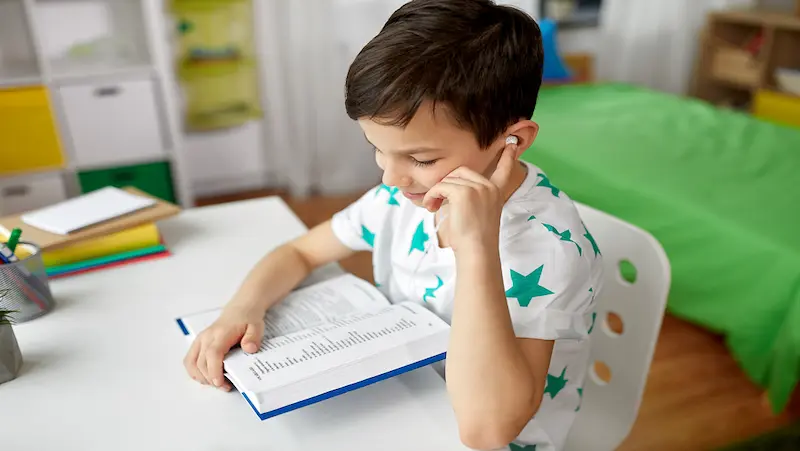
Age-Appropriate Language
A kid-friendly dictionary is tailored to meet the needs and comprehension levels of young children. It uses age-appropriate language, simple definitions, and clear examples, making it easier for kids to understand the meanings of words.
By using words and phrases that are familiar to children, these dictionaries help bridge the gap between adult language and a child’s vocabulary, fostering better understanding and retention of new words.
Vocabulary Expansion
A robust vocabulary is crucial for effective communication and successful learning. Kid-friendly dictionaries act as valuable tools for expanding a child’s vocabulary by introducing new words, their definitions, and usage in a way that is accessible and engaging.
With the help of illustrations, interactive activities, and relatable examples, these dictionaries make the learning process enjoyable and encourage children to explore new words and concepts.
Improved Reading and Comprehension Skills
When children come across unfamiliar words while reading, it can disrupt their comprehension and hinder their overall reading experience. Kid-friendly dictionaries empower children to become independent learners by enabling them to look up unfamiliar words and understand their meanings in context.
This, in turn, enhances their reading and comprehension skills as they encounter new words and phrases, enabling a deeper understanding of the text.
Boost in Writing Skills
Effective writing is heavily reliant on a strong vocabulary and the ability to use words correctly. Kid-friendly dictionaries provide young writers with a wealth of age-appropriate words and synonyms that can be incorporated into their writing, helping them to express themselves more precisely and creatively.
By promoting the use of diverse vocabulary, these dictionaries foster linguistic development and encourage children to explore alternative ways to convey their thoughts and ideas.
Encourages Independent Learning
One of the key benefits of a kid-friendly dictionary is that it empowers children to take ownership of their learning. By having access to a dictionary specifically designed for them, children develop the habit of self-reliance and problem-solving.
They learn to seek answers on their own, building their confidence and nurturing a lifelong love for learning. Kid-friendly dictionaries instill a sense of achievement and encourage children to actively engage with words, fostering a sense of curiosity and exploration.
Overview of the Dictionary
Dictionaries have been an integral part of human civilization, serving as reliable sources of knowledge and language comprehension for centuries. However, with the advent of technology, traditional paper dictionaries have made way for digital counterparts that offer enhanced features and user-friendly interfaces.
In this blog, we will explore the unique features of modern dictionaries and delve into their intuitive interfaces, revolutionizing the way we explore language and expand our vocabulary.

A Wealth of Definitions
One of the standout features of modern dictionaries is their vast database of definitions. Gone are the days when dictionaries were limited to providing a single explanation for a word. Today, dictionaries contain a multitude of definitions, allowing users to grasp the various nuances and connotations of a word.
This comprehensive approach enables learners, writers, and language enthusiasts to better understand the depth and richness of a language, promoting effective communication.
Extensive Word Synonyms and Antonyms
To aid in effective writing and expression, dictionaries now incorporate extensive lists of synonyms and antonyms for each word. This feature offers users a range of alternative words with similar or opposite meanings, enabling them to choose the most appropriate term based on the desired tone, context, or style of their writing.
By suggesting synonyms and antonyms, dictionaries encourage language creativity and support users in expanding their vocabulary.
Example Sentences and Usage Guidance
The inclusion of example sentences in modern dictionaries plays a crucial role in understanding how a word is used in context. These sentences provide real-world instances that help users comprehend the word’s meaning and usage better.
Moreover, dictionaries often highlight the most common collocations and idiomatic expressions associated with a word, further enhancing language proficiency and promoting accurate usage.
Pronunciation Guides
The correct pronunciation is vital for effective communication, and modern dictionaries acknowledge this by providing pronunciation guides for each word. These guides may include phonetic transcriptions, audio recordings, or both.
Such features assist users in accurately pronouncing words, eliminating potential misunderstandings and miscommunications. Whether you’re learning a new language or refining your pronunciation skills, these pronunciation guides are invaluable resources.
Cross-Referencing and Hyperlinks
Digital dictionaries offer the advantage of cross-referencing, allowing users to explore related words, concepts, or themes easily. This feature encourages a deeper understanding of the interconnectedness of language and enables users to broaden their knowledge beyond the immediate scope of a single word.
Hyperlinks within dictionary entries create a seamless browsing experience, making it convenient for users to navigate through various sections of the dictionary and access additional information effortlessly.
User-Friendly Interfaces
In addition to their extensive features, modern dictionaries boast user-friendly interfaces designed to enhance the overall user experience. With intuitive search bars, auto-suggestions, and filters, finding the desired word or phrase becomes a quick and effortless task.
The layout of entries is clean and organized, allowing for easy readability and comprehension. Many dictionaries also offer customization options, enabling users to personalize their experience by adjusting font sizes, color schemes, and display preferences.
How to Make Learning Fun
Learning doesn’t have to be a dull and tedious task. In fact, by infusing it with fun and creativity, you can make the process enjoyable and engaging. One area that often requires dedicated effort is vocabulary building.
However, with the right approach and some creative techniques, you can transform the mundane task of memorizing words into a delightful experience. In this blog, we will explore some effective tips to make learning vocabulary fun and exciting.
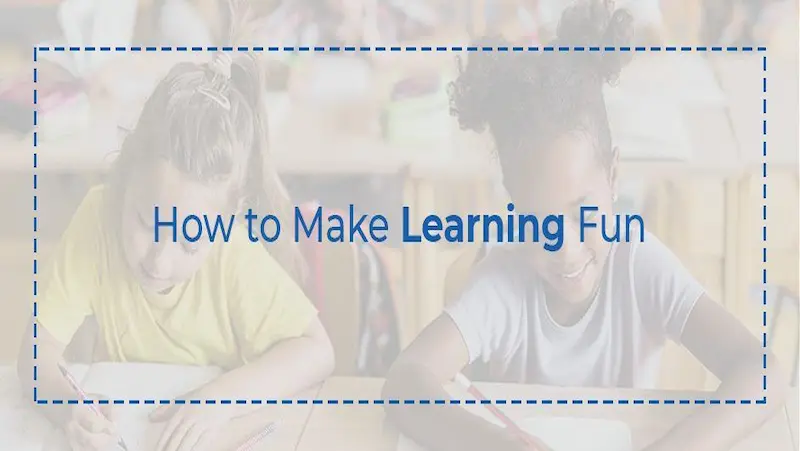
Contextualize the Words
Rather than simply memorizing isolated words, provide a context that relates to the learner’s life or interests. Use examples, stories, or scenarios that capture their attention.
For instance, if the word is “ecosystem,” discuss the concept using a relatable analogy, such as comparing it to a miniature city where different organisms play specific roles. By connecting words to familiar experiences, learners are more likely to remember and enjoy using them.
Incorporate Games and Challenges
Introduce vocabulary games and challenges to make the learning process interactive and entertaining. Word puzzles, crosswords, and word association games are excellent options to engage learners.
Online platforms and apps like Quizlet or Duolingo offer a variety of interactive vocabulary exercises that incorporate gamification elements. By turning learning into a friendly competition, you can enhance motivation and enthusiasm.
Check out coding game for kids, To find more games related to coding, which helps the children to learn coding with games.
Utilize Multimedia Resources
Bring words to life through multimedia resources like videos, songs, and images. Visuals and auditory cues have a powerful impact on memory retention. Show educational videos or clips related to the topic, accompanied by subtitles or captions to reinforce word comprehension.
Create vocabulary playlists with catchy tunes or rhymes that help learners remember specific words and their meanings. Additionally, incorporating relevant images and illustrations can aid in visualizing abstract concepts.
Engage in Role-Play and Conversations
Encourage learners to actively use the vocabulary they’re acquiring by engaging in role-play scenarios or conversations. Create dialogues or skits where they can practice using the words in context.
This interactive approach not only reinforces understanding but also builds confidence in using the vocabulary. It also adds an element of fun and creativity to the learning experience, as learners get to step into different roles and explore different situations.
Personalize Learning with Real-Life Applications
Connect vocabulary learning to real-life situations and personal interests. Encourage learners to read books, articles, or blogs on topics they find fascinating. Engage them in discussions, debates, or writing exercises using the newly learned words.
By making the vocabulary relevant to their lives, learners will feel more invested and motivated to expand their linguistic skills.
Create a Vocabulary Treasure Hunt
Transform vocabulary building into an exciting treasure hunt. Hide word cards or labels around the learning environment or use digital tools for an online treasure hunt. Provide clues and challenges that involve using the words correctly.
This activity fosters an adventurous spirit and makes learning an enjoyable and memorable experience.
Age Appropriateness
Language is a powerful tool that evolves and adapts to the needs of its users. Dictionaries, as comprehensive linguistic references, play a vital role in capturing the essence of language. However, not all dictionaries are created equal.
They must cater to different age groups, providing age-appropriate content that aligns with the developmental stages of individuals. In this blog post, we will explore how dictionaries accommodate various age groups, offering tailored experiences to enhance language learning and comprehension.
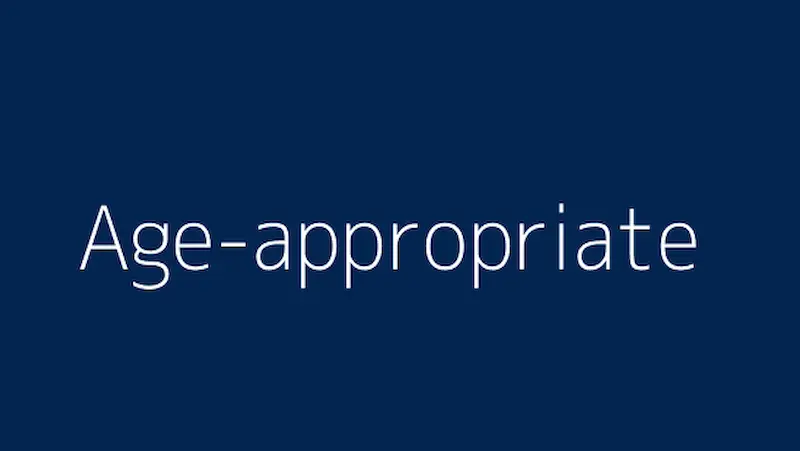
Early Childhood Dictionaries
For young children who are just beginning their journey with language, early childhood learning of dictionaries offer simplified definitions and vibrant illustrations. These dictionaries focus on building vocabulary, introducing basic concepts, and facilitating early reading skills.
They use simple language and include words that children encounter in their daily lives, such as colors, animals, and objects. By providing age-appropriate content, these dictionaries foster a love for language and aid in the early literacy development in Children’s education.
Children’s Dictionaries
As children grow older, their vocabulary expands, and they encounter more complex words and concepts. Children’s dictionaries bridge the gap between early childhood dictionaries and those designed for older readers.
They provide more detailed definitions, offer example sentences, and include age-appropriate illustrations. These dictionaries also introduce features like word games, puzzles, and language tips to make learning engaging and enjoyable.
Adolescent Dictionaries
During adolescence, individuals experience significant cognitive and linguistic growth. To cater to their expanding vocabulary and intellectual curiosity, adolescent dictionaries become more comprehensive.
They incorporate a wider range of words, including technical terms and specialized jargon. Additionally, these dictionaries often include etymologies, synonyms, and antonyms to deepen language understanding and provide context for word usage.
Adult Dictionaries
Adult dictionaries are the most extensive and encompassing. They cover a vast array of words, including those from various academic disciplines and professional fields. These dictionaries typically offer in-depth definitions, comprehensive etymologies, usage examples, and extensive cross-referencing.
They cater to the needs of individuals engaged in higher education, specialized professions, or those seeking a comprehensive understanding of the language.
Specialized Dictionaries
In addition to age-specific dictionaries, specialized dictionaries cater to niche interests and professional domains. These dictionaries focus on subjects such as medicine, law, science, finance, and more.
They provide detailed explanations, specific terminology, and industry-specific usage examples. Specialized dictionaries are indispensable resources for professionals and enthusiasts seeking accurate and precise language references within their respective fields.
Testimonials or Success Stories
In an increasingly interconnected world, strong language skills play a pivotal role in opening doors to knowledge and personal development. One tool that has consistently proven its worth in this endeavor is the dictionary.
In this blog, we will explore the power of testimonials and success stories shared by parents who have witnessed firsthand the positive impact of using a dictionary with their children. These real-life experiences serve as a testament to the invaluable role dictionaries play in nurturing young minds.
The Power of Vocabulary Expansion
A broader vocabulary enhances communication skills, critical thinking, and overall cognitive development in children. Sarah, a mother of two, recounts how regularly using a dictionary with her children, aged 8 and 10, transformed their verbal abilities.
She noticed that their conversations became more engaging, articulate, and expressive as they explored new words together. This expansion of their vocabulary not only boosted their confidence but also laid a solid foundation for academic success.
Encouraging Independent Learning
Developing a sense of independence is crucial for children’s growth. Robert, a father, shares how he introduced his 12-year-old son to a dictionary. Initially, his son felt overwhelmed by the vastness of the book but soon discovered the joy of independently looking up words.
This newfound autonomy instilled a sense of curiosity and ownership over his learning journey. Robert proudly explains how his son now seeks out new words proactively, developing a lifelong habit of self-guided learning.
Cultivating Strong Reading Habits
Reading is a gateway to imagination, knowledge, and empathy. Lisa, a mother of a 7-year-old daughter, describes how incorporating a dictionary into their reading routine fostered a love for books. As they encountered unfamiliar words, they would pause, search for meanings, and engage in discussions.
This interactive process not only enhanced her daughter’s reading comprehension but also created memorable bonding moments. Lisa emphasizes that her daughter’s newfound enthusiasm for reading can be traced back to their dictionary adventures.
Boosting Academic Performance
The impact of using a dictionary on academic performance cannot be overstated. Tom, a father of a high school student, shares how his daughter’s grades significantly improved after integrating a dictionary into her study routine.
The dictionary became her trusted companion, helping her tackle complex texts, expand her vocabulary, and excel in assignments. Tom commends the dictionary for empowering his daughter to independently overcome challenges, leading to a newfound sense of academic achievement.
Nurturing a Love for Language
The dictionary is not just a practical tool; it can also inspire a genuine love for language. Julie, a mother of three, highlights how incorporating a dictionary into their daily lives sparked a deep appreciation for words and language in her children.
They began to view language as a treasure trove, exploring meanings, origins, and nuances of words. This newfound fascination with language extended beyond the pages of the dictionary, fostering creativity and a love for writing among her children.
Conclusion
In conclusion, encouraging parents to utilize the dictionary as a tool to unlock their child’s potential is a crucial step in fostering their academic growth and language development. By introducing children to the power of words and the wealth of knowledge contained within the pages of a dictionary, parents can empower their children to become more confident, articulate, and knowledgeable individuals.
The dictionary serves as a gateway to a world of information, enabling children to expand their vocabulary, improve their language skills, and enhance their communication abilities. It exposes them to new words, meanings, pronunciations, and contexts, equipping them with a broader understanding of language and enabling them to express their thoughts and ideas more effectively.
Additionally, using the dictionary with their children provides parents with an opportunity for meaningful engagement and quality time together. Exploring words, discussing their definitions, and encouraging children to use new words in everyday conversations can foster a strong parent-child bond while also nurturing the child’s intellectual development.
In a world where technology often dominates our attention, the humble dictionary serves as a reminder of the timeless importance of words and language. By encouraging parents to embrace this valuable resource and make it an integral part of their child’s educational journey, we empower children to unlock their full potential and embark on a lifelong love affair with language and learning.
To get your hands on more such educational and free resources on coding, robotics, game development, etc., do check out the BrightCHAMPS Blog Page now!’ Learn about coding for kids also.
BrightChamps presents an enriching program in robotics for kids, inspiring young minds to explore the fascinating world of technology and automation. Unleash their potential and creativity with our hands-on robotics curriculum!
Frequently Asked Questions
A1: A kid-friendly dictionary is a specialized dictionary designed specifically for children. It presents age-appropriate definitions, examples, and explanations to help young learners understand and expand their vocabulary.
A2: A dictionary for kids can greatly enhance your child’s vocabulary by providing clear and simplified definitions of words, along with relevant examples. It helps them develop language skills, improve comprehension, and build a strong foundation for effective communication.
A3: Yes, our kid-friendly dictionary offers interactive features such as engaging illustrations, audio pronunciations, word games, and activities. These features make learning enjoyable and encourage active participation.
A4: You can make learning fun for your child using the dictionary by incorporating word challenges, scavenger hunts, or creating a “word of the day” game. Encourage your child to explore new words, and their meanings, and use them in daily conversations.
A5: Yes, our dictionary is designed to be suitable for various age groups. It includes content tailored to different levels of understanding, making it beneficial for early readers, elementary school children, and even middle schoolers who are expanding their vocabulary.

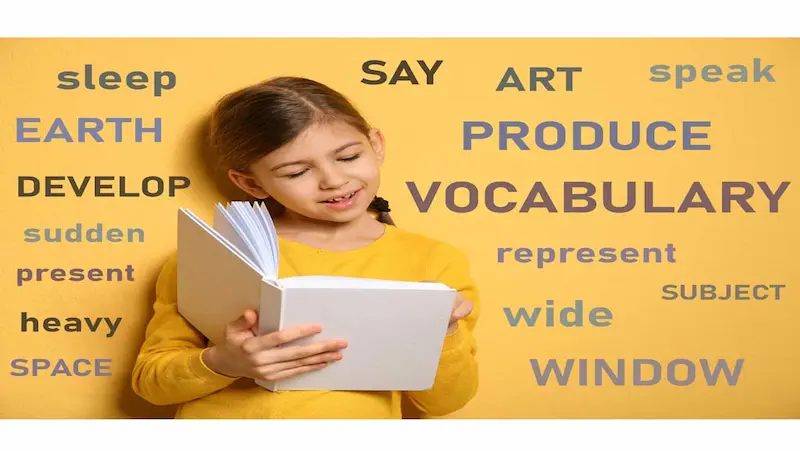
 We are an army of educators and passionate learners from BrightChamps family, committed to providing free learning resources to kids, parents & students.
We are an army of educators and passionate learners from BrightChamps family, committed to providing free learning resources to kids, parents & students.















